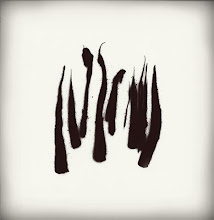Given that the same old discussions about the impact of overt politics in experimental music have resurfaced on the internet again today, this is a timely (though coincidental) CD to be writing about this evening. Casa Corp is the title of a trio release on the Dromos label by Edén Carrasco, (alto sax) Christof Kurzmann (laptop and voice) and Leonel Kaplan (trumpet). It contains a single thirty-three minute long (mostly) improvised piece recorded a little more than a year ago in Buenos Aries. On the whole, its a very lovely disc of slithering, burbling electroacoustic improvisation. However at a couple of points on the release Kurzmann, out of nowhere sings verses from the leftist protest song The Red Flag.
Now I’m not going to further labour the
point about Kurzmann’s singing voice. I’m not a fan of it, and can’t see
that changing any time soon. From the minute I saw the ‘voice’ credit
beside his name on this release however I made a conscious effort to try
and get past it and try and enjoy the album in spite of whatever
Kurzmann’s singing brought to it. For the majority of the time, this is
easy to do then, because the vocals are only present for a small portion
of what is otherwise a very nicely put together (if slightly muddily
recorded) improv session. The impact of the vocals however is enormous.
Not only because the vocals sound awkward and completely out of place,
but also because of the chosen song. Why was this particular piece of
left wing history chosen? A reference to a situation in Argentina? A
reminder that avant garde music has political responsibilities?
Certainly it has brought the question of how politics are infused into
experimental music to the front of my thoughts again, but was there any
need? Personally I think the addition of the two bursts of The Red Flag
here- one at the start of the piece, once it gets going after two or
three minutes of near silence, and again at the end, ruin the album.
Honestly its like sitting in the garden early one wintry morning
admiring how the frost highlights a beautiful, intricate spider’s web,
only for a copy of the Socialist Worker to blow over the fence and rip
right through it. Its nice to be reminded of the good fight every so
often. But not now. Not here. I was enjoying that album.
If the inclusion of The Red Flag here
was indeed a politically motivated gesture, I wonder what it hoped to
achieve? Surely this CD will sell a maximum of about two hundred copies?
Surely those copies will be bought by (almost entirely) those who
already align themselves to some degree at least with the left side of
the political spectrum? I cannot believe I am the only one that
considers all improvising musicians to have a default starting position
of being aligned to the left. What did hearing this song amongst an
otherwise really energising, captivating half an hour of free
improvisation hope to achieve beyond reaffirming what we already think?
There is nothing wrong with the message, but to my ears this was a poor
choice of vehicle through which to send it. Maybe the inclusion of the
song wasn’t a political move at all. In which case its annoying and
confusing rather than annoying and intriguing. So, yes, I tried to make a
conscious effort to get past Kurzmann’s singing on this album. Don’t
think it worked out…
The rest of the album though, is really
enjoyable. The two minute wait for anything to happen is a nice touch.
When sounds appear, breathy gushes build over a short period into the
gently pulsing, slightly droning, but mostly texturally layered music.
It all feels fragile and human, the sounds of exhaling through metal
pipes underpinned by Kurzmann’s very nice electronic groans and tones.
The trio work well together but also keep the music tilting on an edge,
constantly feeling like it will all fall apart, held together by the
limitations of the human lungs and the processing power of a computer.
It stays interesting, and keeps the listener fixed for its half an hour
length (increasingly I am considering thirty minutes to be the optimum
length for music of this type) and, if it wasn’t for the vocal bookends
would be a very fine album indeed. As it is, I probably won’t play it
again in a hurry, which is a shame, to me at least.
On a separate note, one of the most
beautiful CD sleeves I’ve seen in a while, a delicate, photo-mechanical
print that naturally decays as the sleeve goes about its intended
purpose. Very nice.
by Richard Pinnell in The Watchful Ear











Sem comentários:
Enviar um comentário